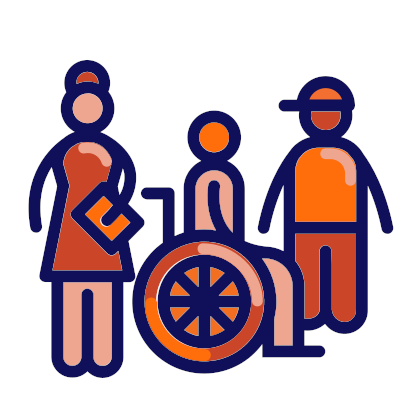Dealing with propaganda, misinformation and fake news

It is vital for schools to provide students with a solid education on media and information literacy as part of the curriculum.
Teachers must be well-trained in the subject to empower students with the necessary competences to critically understand and assess information reported by all forms of media.
Projects in partnership with national and local authorities and media organisations are encouraged.
Facts & figures
Two thirds of EU citizens report coming across fake news at least once a week.[1]
Over 80% of EU citizens say they see fake news both as an issue for their country and for democracy in general.[2]
Half of EU citizens aged 15-30 say they need critical thinking and information skills to help them combat fake news and extremism in society.[3]
What is propaganda, misinformation and fake news?
The terms ‘propaganda’, ‘misinformation’ and ‘fake news’ often overlap in meaning. They are used to refer to a range of ways in which sharing information causes harm, intentionally or unintentionally – usually in relation to the promotion of a particular moral or political cause or point of view.
It is possible to separate out three clearly different uses of information which fall into this category:
- Mis-information - false information shared with no intention of causing harm
- Dis-information - false information shared intentionally to cause harm
- Mal-information - true information shared intentionally to cause harm.[4]
Although none of these phenomena are new, they have taken on new significance recently with the widespread availability of sophisticated forms of information and communication technology. The sharing of text, images, videos, or links online, for example, allows information to go viral within hours.
Why is propaganda, misinformation and fake news important at school?
Since information and communication technology is so central to their lives nowadays, young people are particularly vulnerable to propaganda, misinformation and fake news. Young people spend a significant amount of their time watching television, playing online games, chatting, blogging, listening to music, posting photos of themselves and searching for other people with whom to communicate online. They rely heavily on information circulated online for their knowledge of the world and how they perceive reality. Many parents do not have sufficient technical competence to keep up with their children’s online activity, or educate them about the risks they might be facing. Schools, therefore, have a duty to provide young people with the critical and information skills which they cannot access at home.
“The significant rise of fake news as propaganda in recent years makes it critical that students have the skills they need to identify truth and discern bias.”[5]
The ability to respond critically to online propaganda, misinformation and fake news is more than a safe-guarding tool, however, it is also an important democratic competence in its own right. Analytical and critical thinking, and knowledge and critical understanding of the world, including the role of language and communication lie at the heart of the Council of Europe Reference Framework of Competences for Democratic Culture. They are central to Digital Citizenship Education and Media and Information Literacy.[6]
“School is the one place where it is absolutely crucial to train future citizens to understand, to criticise and to create information. It is in schools that the digital citizen must begin and maintain constant critical thinking in order to attain meaningful participation in his or her community.”[7]
The ability to handle off-line as well as online propaganda, misinformation and fake news is also a key skill in a number of other school subjects, e.g., History, Social Studies, Science, Religious Studies and Art. Young people may study the use of nationalistic and patriotic slogans, or so-called ‘atrocity propaganda’ in WW1 in History, for example; or art forms designed to support particular ideologies in Art lessons.
Another area in which information and communication technology is becoming an issue for schools is through adverse comments made about teachers and schools on social media. Schools are finding that parents and others increasingly turn to social media when they have a dispute or disagreement with their school, e.g., over school rules, school policies, or staff behaviour. How to handle online critical or defamatory comments or campaigns of this sort has become a matter of concern for leaders and managers in some schools.[8]
What are the challenges?
There are a number of challenges facing schools wishing to take propaganda, misinformation and fake news seriously as an educational or social issue:
- Teachers’ own online activity and area of experience is often quite limited and frequently lags behind that of their students. This can make them reticent to take on this area of teaching and learning without a significant commitment to professional development.
- The speed with which technology and young peoples’ online activity changes makes it difficult for teachers to keep up-to-date with recent developments. Even professional development programmes can go rapidly out-of-date.
- It can be difficult finding a discrete slot in the school timetable where issues relating to the creation and sharing of information can be taught. While aspects may be raised in a number of subjects, it can be a problem finding a space in an over-full curriculum where the phenomenon can be dealt with head-on as an issue in its own right.
- The description ‘fake news’ does not mean there is such a category as ‘true’ news. All news is a selection and written to suit a particular audience for a particular purpose. Providing the depth of analysis and sophisticated skills that do justice to this topic can be a challenge for some schools, especially in terms of teacher competence and training.
“States should take measures to promote media and digital literacy, including by covering these topics as part of the regular school curriculum and by engaging with civil society and other stakeholders to raise awareness about these issues.”[9]
How can schools get active?
Providing training for teachers on media and information literacy is the key to raising the profile of the issue in schools. Even though it may have a tendency to date, training can at least alert teaching staff to the importance of this area of learning for their students. The more important teachers see the area, the more they will feel the need to continuously up-date their skills themselves.
While it is important to recruit as many teachers as possible to this work, it can be more effective in the long run to start by appointing an individual teacher, or a small team, to lead on media and information literacy in the school. This element of specialist expertise can be charged with:
- Keeping staff up to date with new developments in information and communication technology
- Training them in strategies for handling propaganda, misinformation and fake news
- Helping them integrate these issues into the curriculum of different subjects
- Leading on school-policy development and action planning in this area.
In addition to these sorts of developments, there are a number of other initiatives a school can take to meet the challenges of the rapidly changing world of online propaganda, misinformation and fake news. These include:
- Special days or events in school on the subject of propaganda, misinformation or fake news as a way of overcoming the problems of an over-crowded formal curriculum
- Peer education initiatives in which older students instruct and counsel younger students in the safe handling of information they access in the media
- Partnerships with outside professionals or companies with expertise in this area, e.g., journalists, IT companies, universities
- Virtual links with schools in other regions or countries enabling students to get a different perspective on news and current affairs
- Recruiting parents with expertise in information and communication technology to help with school policy development or work alongside teaching staff to enrich student learning.
[1] Flash Eurobarometer 464 , 2018
[3] Flash Eurobarometer 455, 2018
[4] Wardle & Derakhshan, H., 2017. Information Disorder: Toward an interdisciplinary framework for research and policy making. Strasbourg, France: Council of Europe.
[5] When is fake news propaganda?, Facing History and Ourselves, 2018
[6] Digital Citizenship Education Handbook, 2019
[8] Council of Europe: Managing Controversy: a whole school training tool, 2017
[9] OSCE: Joint declaration on freedom of expression and “fake news”, disinformation and propaganda
 Resources on Dealing with Propaganda, misinformation and fake news
Resources on Dealing with Propaganda, misinformation and fake news
 Related schools projects
Related schools projects
Address: Wolnosci 22b, 81-327 Gdynia
Country: Poland
Project: Developing democratic society
 Working language during the project:
Working language during the project:
- Polish
- English
 Themes of the Council of Europe campaign “FREE to SPEAK, SAFE to LEARN - Democratic Schools for All” covered:
Themes of the Council of Europe campaign “FREE to SPEAK, SAFE to LEARN - Democratic Schools for All” covered:
- Addressing controversial issues
- Dealing with propaganda, misinformation and fake news
 Competences from the Reference Framework of Competences for Democratic Culture (CDC) addressed and where / how they were integrated:
Competences from the Reference Framework of Competences for Democratic Culture (CDC) addressed and where / how they were integrated:
- Knowledge and critical understanding of the world (esp. human rights, media, history, law, politics)
The topics we focus on deal with human rights and the contemporary situation of Europe and the world in general. - Analytical and critical thinking skills
Choosing certain sources of information rather than others, relying on witnesses, evidence, facts, statistics, reliable sites, surveys. - Co-operation skills
Building a team, working together, sharing tasks, being responsible for certain issues, supporting others.
 Target group age range:
Target group age range:
- 15-19
 Level of education:
Level of education:
- Upper secondary education
Short description of the project:
Forming a European Debating Club - a group of students that will organise as well as take part in debates about current issues and issues concerning history..
The first steps were to bring together students that were interested in developing debating skills as well as topics concerning the world of media, politics, current issues. Then, we decided to take part in the debate in the District Court. To prepare for that students had to find statistics, reliable sources of information, materials they could use to illustrate the problem and prepare their arguments as soon as they shared the roles. The topics we were working on were: "Poland should accept refugees", "Brexit is a positive idea for Europe", "Politicians should always tell the truth". No one knew which side they would be on until the last moment. .
We invited students from ELSA (European Law Students Association) to organise workshops on the credibility of information we find in the news, how to avoid being manipulated, how to decide which sources you can rely on. A series of workshops were then organised on different topics connected to our debating issues: women's rights, hate speech, tackling discrimination by specialists for example: Women's Rights Centre, University of Gdansk and ELSA.
What makes the project more widely recognised is the fact that we always invite other students to watch the debates. Then they vote for the better team, the best speaker and the most convincing arguments. They also hold two different pieces of paper - red and green and raise them when they agree (green) or disagree (red) with the arguments. .
Some of the exercises are also given to students during English lessons. Students work in pairs of in small groups and have about 10 minutes to prepare for defending or rejecting some issues - just like in a debate. The examples were: Patriotism is outdated, More prisons should be built, Marriage is a perfect institution, Religion is the opium for masses etc... .
The students also prepare posters informing about, for example, European Parliament elections and reasons for voting. They can sign up to different debates organised by other schools. Right now they are planning to organise a big debate in our school on the future of European Union.
The students have taken part in numerous competitions on the EU, Law, our region and many of them have been successful.
 Aims/objectives
Aims/objectives
The main reason for forming a club is to gather together students that would like to work together, organise something together, getting involved and involving others in discussion, being aware of the rules of discussion
 Expected results/outcomes
Expected results/outcomes
- Ability to be critical of information presented by the media and social media, whatever they are.
- Ability to express their own views remembering to respect others’ different points of view . Before debating, the students never know which side they may be on, so they have to delve into arguments for and against and be prepared for both options - this increases their openness to different points of view.
 Changes
Changes
Generally, there were no major changes to the idea, although the way the project is organised includes a lot of flexibility.
 Challenges you faced
Challenges you faced
The main challenge is always to find time, balance between ordinary school work and that extra-curricular projects that, generally, cannot be carried out during lesson time.
 Time-frame of the project:
Time-frame of the project:
One school year- preferably to be continued.
 Council of Europe materials on citizenship and human rights education used while preparing or implementing your practice:
Council of Europe materials on citizenship and human rights education used while preparing or implementing your practice:
- Reference Framework of Competences for Democratic Culture
- Living Democracy-manuals for teachers
- Teaching controversial issues-training pack







